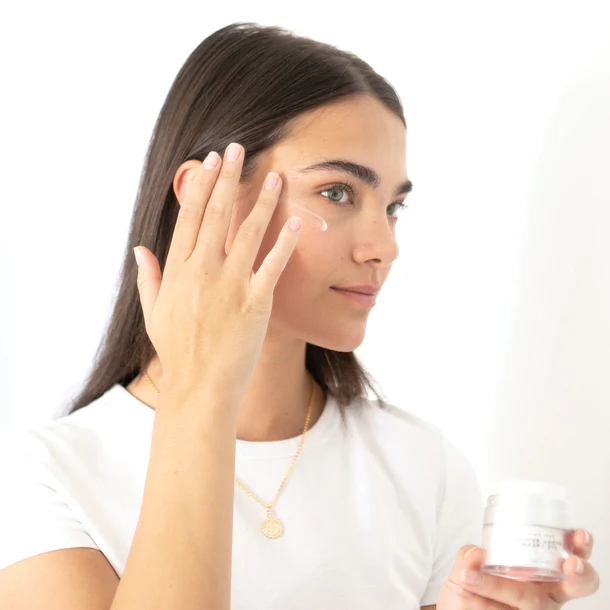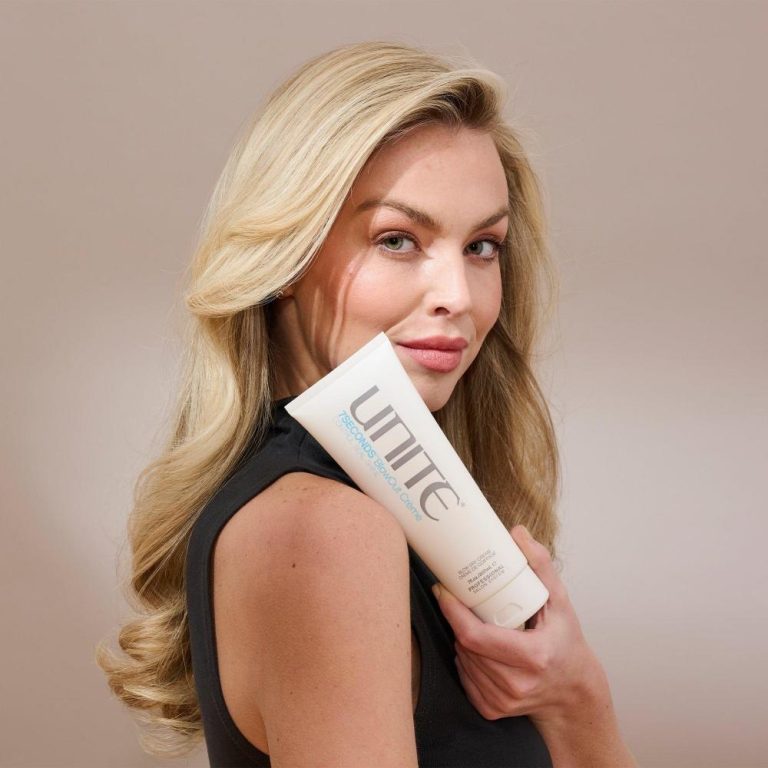
The Science of Retinol Anti Aging Creams
What is Retinol and How Does it Work?
Retinol, a form of vitamin A, is a powerhouse ingredient in the realm of skincare. Widely celebrated for its anti aging properties, retinol works by promoting skin renewal and enhancing collagen production. This, in turn, leads to a reduction in the appearance of fine lines and wrinkles. When applied topically, retinol penetrates the outer layers of skin to repair the lower layers where collagen and elastin reside. It accelerates cell turnover, which brings newer, healthier cells to the surface. As a result, it not only reduces signs of aging but also improves skin tone and texture.
Regular use of retinol anti aging cream can significantly diminish age spots and improve overall skin firmness. Its effectiveness lies in its ability to signal the body to produce more collagen, thereby offering a plumper, more youthful complexion. However, it’s crucial to introduce retinol into your skincare routine gradually. In order to reap its full benefits, it should be used consistently over time, as the repair and renewal processes are progressive. It’s important to note that while retinol yields visible skin improvements, patience and regular application are key for long-term results.

The Benefits of Retinol in Skincare
Retinol is a game-changer in skincare. As an anti aging hero, it offers a multitude of benefits. Its ability to reduce wrinkles is just the start. Here are the core advantages of using retinol anti aging cream in your daily regimen:
- Boosts Collagen Production: With age, our collagen production diminishes. Retinol helps to ramp this up, giving skin its elasticity and bounce back.
- Evens Skin Tone: Dark spots and uneven skin tones fade over time. Retinol can help achieve a more uniform complexion.
- Refines Skin Texture: Retinol has a knack for smoothing out the skin’s surface. It can make pores appear smaller and the skin’s texture more refined.
- Acne Control: While often praised for its anti aging properties, retinol can also keep acne at bay. It helps clear up skin and prevent future breakouts.
- Reduces Sun Damage: Prolonged sun exposure can lead to damage. Retinol can help in reversing some signs of sun-related aging.
- Minimizes Fine Lines: Regular application of retinol cream can lessen the depth of fine lines, making them less visible.
For best results, pair retinol use with sunscreen, as it increases your skin’s sensitivity to the sun. This dynamic duo will aid in protecting and rejuvenating your skin. Remember that benefits are best seen over continued use. Starting with a lower concentration and gradually increasing can help your skin adjust to retinol. With time, the positive changes in your skin’s appearance will become more noticeable. Use retinol anti aging cream wisely, and you may just find it becomes a staple in your skincare arsenal.
Types of Retinol Creams Available on the Market
When considering retinol anti aging cream, it’s essential to know the types available. Here’s a breakdown of the different formulations you can find:
- Pure Retinol Creams: These contain a higher concentration of retinol. They are best for those who have already introduced retinol into their routine.
- Retinol Serums: Lightweight and fast-absorbing, serums often have a potent retinol formula. They suit all skin types.
- Encapsulated Retinol Creams: This type encapsulates retinol in a polymer shell. It releases the ingredient slowly, ideal for sensitive skin.
- Retinol Night Creams: Designed for overnight use, these creams work while you sleep. They help in skin repair and rejuvenation.
- Retinol Creams with Moisturizers: These creams combine hydration with retinol. They help to prevent dryness often associated with retinol use.
- Prescription-Strength Retinol: These are the strongest form and require a doctor’s prescription. They are for severe signs of aging.
When selecting a retinol cream, it’s crucial to choose one that fits your skin’s tolerance and needs. Beginners might start with lower concentrations or moisturizing formulas. Over time, you may build up to stronger doses as your skin adapts. Remember, patience is key—results will become evident with consistent use. Always incorporate a high SPF sunscreen during the day to protect your sensitive skin from sun damage.

How to Properly Use Retinol for Anti Aging
To harness the power of retinol anti aging cream, follow these steps for proper use:
- Start Slowly: Begin with a low-concentration retinol cream. Use it every other night to allow your skin to adapt.
- Apply on Clean Skin: Wash your face and pat it dry. Apply a pea-sized amount of retinol cream evenly across your face.
- Use at Night: Retinol can make skin more sun-sensitive. Apply it at night to avoid direct sunlight exposure.
- Moisturize: Follow up with a moisturizer to keep skin hydrated and to reduce potential dryness or irritation.
- Gradually Increase Frequency: As your skin builds tolerance, you can use retinol more frequently, eventually every night.
- Protect with Sunscreen: In the morning, use a high SPF sunscreen to protect your skin from UV rays.
- Monitor Your Skin: Pay attention to how your skin reacts. If irritation occurs, reduce the frequency of retinol application.
- Combine Wisely: Do not mix retinol with other strong ingredients like vitamin C or exfoliants at the same time.
- Be Patient: Remember that it takes time to see the full benefits of retinol. Consistent use over several months is key.
Using retinol for anti aging effectively involves a careful and patient approach. With the right method, you can achieve smoother, more youthful skin.
Potential Side Effects and How to Minimize Them
Even the best skincare ingredients have potential downsides, and retinol is no exception. Here are common side effects associated with retinol anti aging cream and tips on how to reduce them:
- Skin Irritation: Some may experience redness, dryness, or flaking. To combat this, start with a lower concentration of retinol. Apply it every other night and increase usage gradually.
- Increased Sensitivity to Sun: Retinol can make your skin more vulnerable to UV rays. Always use a high SPF sunscreen during the day, even if it’s cloudy.
- Peeling: If you notice peeling, do not pick at your skin. This can lead to scars. Use gentle exfoliation and hydrate your skin well.
- Breakouts: A sudden increase in breakouts can occur when you first start using retinol. This is often temporary. If the issue persists, consult a dermatologist.
To minimize side effects, it’s also crucial to integrate retinol into your regimen slowly. Patch test the product to check for adverse reactions before full application. Combine retinol with nourishing ingredients like hyaluronic acid or ceramides to maintain skin moisture. If irritation becomes severe, cease use immediately and seek professional advice.
Remember, consistency is key with retinol anti aging cream but so is listening to your skin. Adjust your routine as needed to ensure the best results with minimal discomfort.

The Role of Retinol in Dermatology: A Professional Perspective
Dermatology experts value retinol in anti aging treatments. It plays a critical part in many professional skincare protocols. Here’s how dermatologists view retinol:
- Collagen Enhancement: Dermatologists note retinol’s powerful effect on collagen. This helps patients maintain firm and elastic skin.
- Skin Renewal: Professionals see retinol as a key player in skin cell turnover. It helps bring fresh cells to the surface for a more youthful look.
- Treatment of Photoaging: Retinol anti aging cream helps repair sun-damaged skin. Dermatologists often recommend it for sun spots and texture issues.
- Acne and Oil Control: Beyond anti aging, dermatologists use retinol for its acne-reducing abilities. It regulates oil production and keeps pores clear.
- Complement to Procedures: Retinol supports the results of cosmetic procedures. It enhances the outcomes of peels and laser treatments.
Professionals advise starting retinol slowly to avoid side effects. They often suggest formulations based on skin type and concerns. Retinol remains a top pick in dermatology for its versatile skin benefits. Always use retinol under professional guidance to ensure safety and effectiveness.
Comparing Retinol with Other Anti Aging Ingredients
Retinol anti aging cream stands out among skincare ingredients. Let’s compare retinol with other anti aging contenders.
- Hyaluronic Acid: Hyaluronic acid hydrates and plumps skin. Unlike retinol, it doesn’t boost collagen or renew skin cells.
- Vitamin C: This antioxidant brightens and protects against free radicals. Retinol is more focused on cell turnover and reducing wrinkles.
- Peptides: Peptides strengthen the skin barrier and may stimulate collagen. Retinol still leads in speeding up cell renewal.
- AHAs and BHAs: These acids exfoliate and improve skin texture. Retinol works deeper, improving skin from within.
- Niacinamide: Known for reducing inflammation and redness, niacinamide has less impact on age-related changes than retinol.
- Ceramides: These lipids protect the skin barrier. They don’t address aging as directly as retinol.
Each ingredient has its merits, but retinol’s powerful anti aging effects are hard to match. Hyaluronic acid, while hydrating, lacks retinol’s transformative cell renewal. Vitamin C’s brightening can’t quite beat retinol’s comprehensive anti-wrinkle action. Peptides may support collagen, but retinol increases both collagen and skin cell turnover. AHAs and BHAs offer surface-level results; retinol goes deep. Niacinamide is great for calming skin, but it can’t turn back time like retinol. Lastly, ceramides may defend skin, but they won’t reverse signs of aging as retinol can.
For significant anti aging effects, retinol is a clear leader. When combined with these other ingredients, though, it can create a powerful skincare routine. However, always consider how retinol interacts with other products. It’s best to consult a dermatologist to tailor the perfect blend for your skin’s needs and goals.

The Future of Retinol in Anti Aging Products
As we look ahead, the role of retinol anti aging cream in skincare holds promise. Continued innovation is likely to bring even more effective formulas. Researchers are working on ways to deliver retinol more efficiently into the skin. This could reduce side effects and enhance benefits. We might see new retinol combinations with other powerful ingredients. These could offer all-rounded anti aging solutions.
Breakthroughs in encapsulation technology may make retinol more gentle. This would allow even those with sensitive skin to use it regularly. Plus, tailoring retinol products to specific skin types and concerns could become standard. Personalization in skincare is on the rise.
The future may also unveil advances in peptide-retinol complexes. These could maximize the collagen-boosting and cell-renewing actions of retinol. Scientists are always seeking ways to extend the effectiveness of this ingredient. It could lead to longer-lasting results from each application.
Environmentally friendly and sustainable retinol anti aging creams are also on the horizon. As the beauty industry moves towards greener practices, retinol isn’t exempt. New sourcing methods and eco-conscious production are becoming priorities.
Ultimately, it’s clear that retinol will continue to be a cornerstone in anti aging skincare. With persistent research and development, the future of retinol looks bright and promising. Users can expect to see more innovative and skin-friendly options emerging in the market. So, keep your eyes peeled for the next generation of retinol anti aging creams.

